- Home
- Jane Arbor
Meet the Sun Halfway Page 2
Meet the Sun Halfway Read online
Page 2
It stood behind a high sandstone wall, its entrance being a gate of scrolled wrought iron beneath a dog-toothed archway. Alice’s host introduced it - “The Dar el Faradis - the House of the Walled Garden. Faradis, meaning Paradise, is a word we have borrowed from the Persian.” He left the car outside and opened the gate on to a short walk bordered by fan-palms leading to a terrazzo-paved square patio surrounding formal beds of flowering shrubs, with, as centrepiece, a stone fountain draped in cascades of morning glory.
It was very quiet and cool there. There was a roof of slatted bamboo and the only sounds were the chrr-chrr of cicadas, the splash of the fountain water and the shuffling of some dun-coloured tortoises as they moved about the damp earth of the beds. On the far side of the patio a studded door gave on to an inner courtyard open to the sky, arcaded on the three sides from which rooms opened off. The pillars of the colonnade supported a first-floor balcony, from which trailed more bougainvillea, morning glory and lianas.
The inward-looking windows of both floors were draped in heavy brocades, and the room into which Alice was shown was furnished, as to carpets, hangings, cushioned seating and ornaments, like an anteroom in a palace. Colour was everywhere, blending and toning; silver shone; glass sparkled. “My mother’s room on this floor,” explained Alice’s escort, and clapped his hands twice in a gesture which came straight from The Arabian Nights.
It summoned a young Moor, who bowed. “Seiyid Karim?”
He took his orders, departed, and a few minutes later a woman came in through an inner door. She was tall, like her son. Her features had been the delicate matrix for his. The hood of her blue ankle-length gown rested lightly on her piled hair. She carried a shallow basket of cut flowers which she set down as her son introduced Alice to her.
“Miss Alice Ireland. Seiyida Charles, my mother.” Then he went to her and talked in a low voice until she stopped him with a raised finger. “We owe it to our guest to speak in English, Karim,” she said, and held out a hand to Alice. “You have had an unfortunate experience, child. How good that Karim arrived in time to rescue you! Your poor head! And your arm! So now I am going to let him tell me no more until I have shown you where you can wash and change your clothes if you wish. Your luggage came to no harm? Good. My woman shall come to you to dress those cuts. She is skilled at such things. And afterwards we shall have tea before Karim takes you over to the Home, where one hopes you will be able to go early to bed. You will have time enough tomorrow to take up your duties, and Karim shall come to see if there is anything you want.”
Alice said, “You are very good, Seiyida Charles. I don’t know how to thank you —” But already she was being ushered through the far door and up the broad curve of an iron-balustraded staircase. At the top, the corridor branched left and right, as if to separate suites. In the dressing-room into which Seiyida Charles showed her, her bags had already been brought. A bathroom adjoined, and there she gratefully rid herself of most of her grime.
She sat down on the low dressing-stool to await the woman who was to come to her. The three-quarters-length mirror showed hangings and fittings and arabesque alcoves against which her own reflection cut an incongruous, alien figure. When, she wondered, had the mirror last looked back at anyone as ordinarily English as she?
Lightly tanned fair skin (England was enjoying a rare good summer for once); pageboy-curved brown hair, caught back under a wide swathe of ribbon; face, broad at the temples, narrowing below her cheekbones to a reasonably neat jaw and chin; eyes grey to green; mouth full-lipped and wide. (Her father had once called it “generous”.) Her height was average; her figure about as slim as it should be. The yellow dress into which she had changed from her stained suit was fresh and becoming, but without any distinction at all.
Seiyida Charles and her son spoke English so well that they must have some English friends. But these were probably equally exotic, had Arabic readily at their tongues’ end and, if she were ever to meet them, would have nothing in common with so ordinary a temporary export from Surrey as herself. Not to mention one that had got damaged in transit, she thought wryly, wondering how long the purpling contusion and cut on her forehead would take to heal.
Seiyida Charles’s “woman” was a forbidding figure in a black kaftan who moved so silently that she was in the room before Alice realised she was there. Her face was expressionless as she
Examined Alice’s cuts and treated them deftly without attempting a word, either of sympathy or question. She accepted Alice’s thanks, proffered in French and English, unsmilingly with a nod, and left as unobtrusively as she had come. Alice tidied up behind herself, repacked her belongings and found her way back to the downstair room into which she had been first shown.
Here there was ceremony. On a long low seat covered with cushions, it was not Seiyida Charles who sat behind an immense silver tray on portable legs, but her son. On the tray were three graceful silver teapots and beside him on the floor a silver spirit-kettle on its stand. The kettle was just coming to the boil and there was an aroma in the air ... of mint.
Intent, Karim ibn Charles dipped his hands into a bowl, also of silver, and dried them on a towel handed by the young Moroccan boy. Then he threw two or three small spoonsful of something into each of the teapots, poured on a half-glass of boiling water, then emptied the water away. Next he added sugar and this time filled the teapots, as Seiyida Charles, inviting Alice to sit beside her, explained, “You are watching our Rite of the Tea, my dear. By tradition, it should be made and offered by the master of the house to a new guest, lest he or she shouldn’t visit us in friendship again. That’s why I told Karim he must make it for you. That is green tea which he is infusing now. When he has put a little of it into our glasses and we have approved it, he will add the mint and infuse it and we shall drink that.”
Meanwhile Karim was crushing a fistful of fresh mint between his fingers, dividing it between each teapot, adding a coffee spoonful of sugar to each and filling with more boiling water. He crushed down the mint in each pot, replaced lids and left the tea to infuse for a few minutes, after which he filled glasses for his mother and Alice from two pots, serving himself from the third.
Tasting the clear amber liquid in her glass, Alice found it oversweet, but completely refreshing. “It’s delicious,” she told Seiyida Charles, who was watching for her reaction and who now turned to her son with a little I-told-you-so nod of her head.
“She likes it. I’d so hoped she would,” she said.
He merely shrugged. “It’s a typical first response from Europeans,” he said. “Later they claim to find it cloying, and very soon after that they are back at their routine of ‘one for each person and one for the pot’ and drowning the result in milk,” - a caustic verdict which made Alice feel that in enjoying her first taste of mint tea, she had only gone with the crowd. The man had an air of being prepared for anything she said or did, and she found it disconcerting.
Seiyida Charles was handing little almond cakes which were so sweet themselves that they offset the sweetness of the tea. Alice’s glass was filled twice more while, answering her hostess’s quiet questions, she filled in some gaps in the little they knew of her.
Yes, her home was in Surrey with her parents who had taken the opportunity of her coming abroad for the whole of her vacation to visit her married sister in New York for the same period. Previously she had only been to Spain on holiday, but while she had waited to be of age to go to college, she had had six months in Bordeaux as an au pair, so that she had some French, though not much. To which Seiyida Charles said, “You will find it is spoken a great deal here,” and at one point her son interpolated, as if he knew what her answer would be,
“Do you come from the Thomas Ireland family, the glass and porcelain firm?”
“Why, yes,” said Alice, surprised. “My father is the fifth generation in the firm. Have you heard of it out here, then?”
He said, “No, but I have been in England, and the name seems to be well known there.”
“You know England?” Feeling it was the only explanation of his command of the language, she added, “You have lived there, perhaps?”
He nodded. “You could say that. I was at university for three years -up at Oxford.” He stood up then. “Perhaps now I ought to be seeing you on the last bit of your way,” he said.
Alice shook hands with Seiyida Charles, thanked her warmly and went out to the car with him. Her luggage was already in it, and they set out.
Now she felt apprehensive and a little lonely. Yesterday there had been the flight out from England and a night in a strange, unexplored city; today, for all its disasters, had had a quality of moonshine happenings, but tomorrow would once again have to be workaday among people and children she had never met. If only, if only Debbie had been more communicative about the job, the detail, the routine, the rewards, the snags! She was going into it more or less blind, and she should have known better than to let Debbie get away with it! But it was too late now. Tonight, tomorrow, she would have to cope. Better brace herself to it, she supposed.
Feeling she ought to make conversation, as they passed a grove of date palms, she asked, “How is it, in a region that seems so arid and where even the river-beds are dry, that they flourish so well?”
Karim ibn Charles said, “Ah, that’s because they put their roots down until they do reach water, of which there is plenty, even in the desert, if you go deep enough. We say of them that they stand with their feet in water and their heads in Heaven.” He paused. “That is about the first question Europeans ask out here. The second —”
Once again Alice felt she had been cut to pattern. “Really?” she said coolly. “And what is the second?”
“Why the camel carries his head so high and wears that superior look on his face.”
“And why does he?”
“Because, of the hundred names of God, of which the world knows ninety-nine, only he, of all creation, knows the hundredth.”
The fantasy of that catching at her imagination, Alice breathed, “Oh -that’s lovely!”
Her companion turned a swift glance of enquiry on her. “‘Lovely’? Haven’t you chosen the wrong word?”
“No!”
“Strange. I’d have expected you to giggle and say some thing like -‘So that’s why he wears that supercilious leer. Now we knew!’ Or some such smart-alec retort.”
“But if that’s the reason, it’s not a leer. It’s pride in his knowledge, and he is entitled to it.” “So you don’t dismiss it as mere fable? That is refreshing.”
“I don’t want to. When I said I thought it was a lovely idea, I meant that. I’d like it to be true, and who knows but that it is? And I shall never forget—”
He glanced at her again, this time with a smile. “You’ll never forget the reason for his sneer, whenever you see a camel?” he prompted.
She answered the smile and agreed, “Yes,” though knowing that had not been at all the thought which she had stopped short of expressing. For that had gone differently. It had been, “I shall never forget the first time I heard it. Nor who told it to me. Nor that my being charmed by it and wanting to believe it seemed to surprise and please you, making me feel less - well, less mass-produced than you had made me feel before. For a moment it made a kind of rapport between us. And I wanted it to go on —”
But she could not say all that to him, stranger that he was. It would have invited a snub which she would well have deserved. And of course it was true that when she next saw a camel she would know why he was proud, guarding the secret which, she would like to believe, had been given only to him to know!
As soon as they reached the Home she recognised it, for in one of her rare letters Debbie had sent a snapshot of it - white-walled, roofed in blue pantiles on different levels more Mediterranean villa in style than Moroccan. It stood high, above a terraced garden which stepped down to a date palm plantation on the slopes beyond its boundaries. There was a paddling pool at one side of the house and a covered play area at the other. The gardens were a riot of homely flowers, marigolds, geranium, ox-eye daisies, pastel cosmos. It looked a happy place for children, even though there were none to be seen.
The girl who answered the door looked about eighteen. She wore a bibbed nursing-apron over her brown ankle-length robe. She had a round juliet cap on her hair, which hung forward in two long black plaits over her shoulders. She looked surprised to see Karim ibn Charles, who greeted her, “Sorab bint Khaled,” and introduced Alice.
The girl smiled and said in good English, “We expected you yesterday, Miss Ireland. A car was sent for you to the airport, but when
you did not come—”
“I know,” Alice smiled back. “I was delayed and was very late. I went to a hotel the air hostess recommended, and it seemed too late to disturb you then. I thought it better to get here as quickly as I could today—”
“So she took Hakim ibn Raud’s bus, which half overturned on the Col Mansour, and she was slightly hurt, as you see. Fortunately I was driving up myself, so I took her back to Faradis before bringing her here,” Karim ibn Charles cut in to explain. “But I can safely leave her with you now, Sorab?”
“But yes, Seiyid Karim. I will see to all.” The girl’s strong young arms made nothing of the weight of Alice’s luggage as she took it from him.
Alice turned and offered her hand. “Thank you for - everything,” she told her rescuer. “You and Seiyda Charles have been very kind.”
He took her hand and bowed. “Think nothing of it,” he said. “It was a pleasure.”
No more and no less than he could have said in brushing aside gratitude, she supposed, though she would have liked something warmer. Something which gave a hint he shared his mother’s hope that she would visit the Dar el Faradis “in friendship” again. She watched him until he reached his car. But he did not look back.
As Sorab went ahead of her up the stairs, she asked the girl, “Where are the children? I don’t see any of them about.”
“No. They are at their supper now. They go to bed early. When I have shown you to your room, and you are ready, you would like to see them?”
“Very much,” said Alice. “You can take twenty, can’t you? How many are here now?”
“Fifteen only. Some will be going back to Tetuan in a few days, others coming in their place. This is your room. You like it? You will be comfortable here?”
“I’m sure I shall.” Alice looked about her with pleasure. The room was light and cool. There were round rush mats on the tiled floor; the furniture was of white cane; there was a myriad-coloured
Moroccan blanket as coverlet to the bed; a shower-room opened off, and the window looked out over the garden. She supposed it was Debbie’s room really, but Debbie had never bothered to describe it. “I shan’t want to leave it when it is time for me to go,” she told Sorab, adding, “Wait for me, won’t you? I needn’t unpack yet. I’d only like to brush my hair. I washed and changed my dress at the Dar el Faradis. You should have seen me! I was in a state!”
The girl came forward to look at her bruised forehead with concern. “Perhaps you should see the doctor about that,” she suggested.
Alice said, “Oh, that’s not necessary. There is a cut beneath the dressing, but it has been cleaned and disinfected, and so has my arm.” She smiled at Sorab’s reflection in the mirror. “How is it that you speak English so well?” she added.
“Because I have been with the Sisters in Tetuan since I was three years old,” said the girl. “My mother died when I was a baby; my father married another woman who did not want me, and the Sisters took me in. I speak and understand Arabic too, but I like to speak English.”
“I’m glad of that. You will be a great help to me. I speak some French, but no Arabic at all.” Alice smiled again. “You know, so far I have been very lucky in finding and being helped by people who speak English fluently. For instance, Seiyid ibn Charles and his mother, though she has some accent. ”
“ ‘Se
iyid ibn Charles’ - should one address him so, where in English one would say' ‘Mr. Charles’?”
For a moment Sorab hesitated. Then, “ ‘Seiyid,’ yes,” she agreed. “Though in Tazenir people usually know him as the Seiyid Karim.” She paused again. “And it is not really strange that he speaks English well. For he is English after all.”
“English?” Alice doubted her own hearing. “But—?” She broke off. “And his mother? She is English? Surely not?”
Sorab shook her head. “No. Seiyida Charles was Moroccan-born -at the Dar el Faradis, which was her father’s house. But if to be born in England of an English father is to be English, then Seiyid Karim is
English, is he not?”
Alice was silent, needing to reshape her first impressions of a tall figure in Moroccan garb, as Eastern in manner as he was in feature; who more than once had said “we” of people he had allowed her to suppose were his own; who, in answer to her question as to his acquaintanceship with England, could have answered casually and frankly, “I happen to be English on my father’s side” - but hadn’t. Nor had his mother, seemingly so outgiving and friendly, said it for him.
Bewilderedly Alice echoed again, “English? He? I - don’t understand!”
CHAPTER TWO
Sorab said, “Perhaps I should not have told you, as he did not. You will think I am a gossip.”
Alice reassured her, “Of course not. If you know it of him, it can be no secret. It’s just that for the moment I found it strange that, knowing I was English myself, he did not tell me.”
In all justice, there was no reason why he should have done, she supposed, and it was hypersensitive of her to feel tricked by the omission. It was no real concern of hers, was it? And yet -!
Rejecting the word “masquerade” as unfair and telling herself that to probe further would indeed be to gossip, she changed the subject by suggesting that they should visit the children now. On the way downstairs she asked, “May I call you simply ‘Sorab’, and leav e out the rest of your name?”

 High Master of Clere
High Master of Clere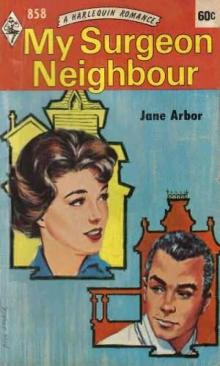 My Surgeon Neighbour
My Surgeon Neighbour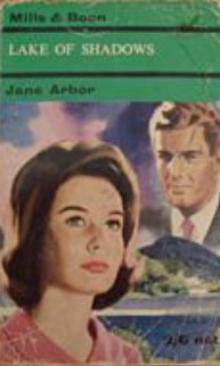 Lake of Shadows
Lake of Shadows Dear Intruder
Dear Intruder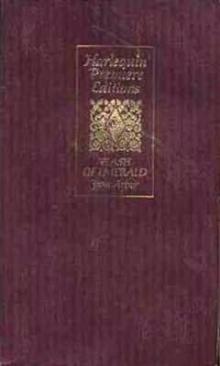 Flash of Emerald
Flash of Emerald Return to Silbersee
Return to Silbersee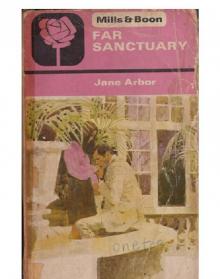 Far Sanctuary
Far Sanctuary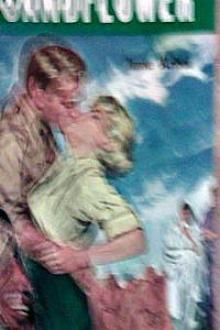 Sandflower
Sandflower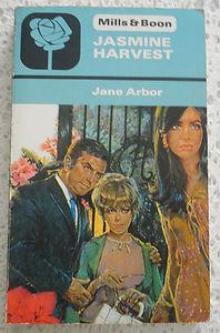 Jasmine Harvest
Jasmine Harvest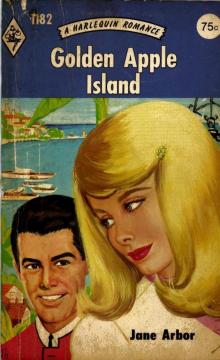 Golden Apple Island
Golden Apple Island Consulting Surgeon
Consulting Surgeon Pact without desire
Pact without desire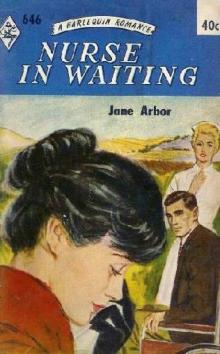 Nurse in Waiting
Nurse in Waiting Wildfire Quest
Wildfire Quest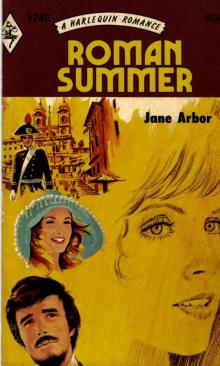 Roman Summer
Roman Summer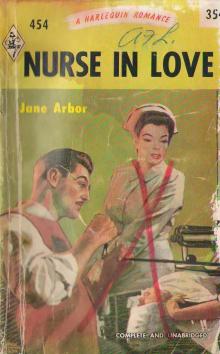 Nurse in Love
Nurse in Love Doctor's Love
Doctor's Love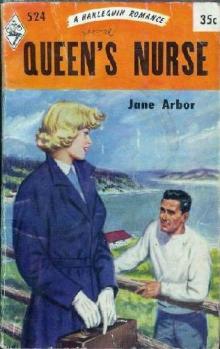 Queen's Nurse
Queen's Nurse Meet the Sun Halfway
Meet the Sun Halfway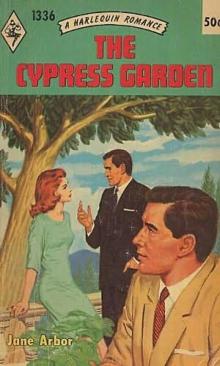 The Cypress Garden
The Cypress Garden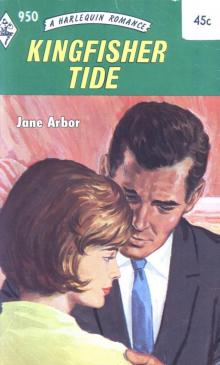 Kingfisher Tide
Kingfisher Tide A Growing Moon
A Growing Moon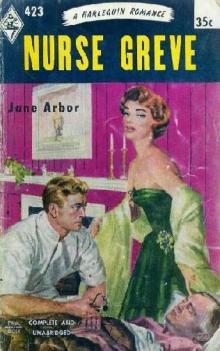 Nurse Greve
Nurse Greve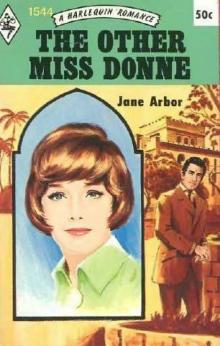 The Other Miss Donne
The Other Miss Donne